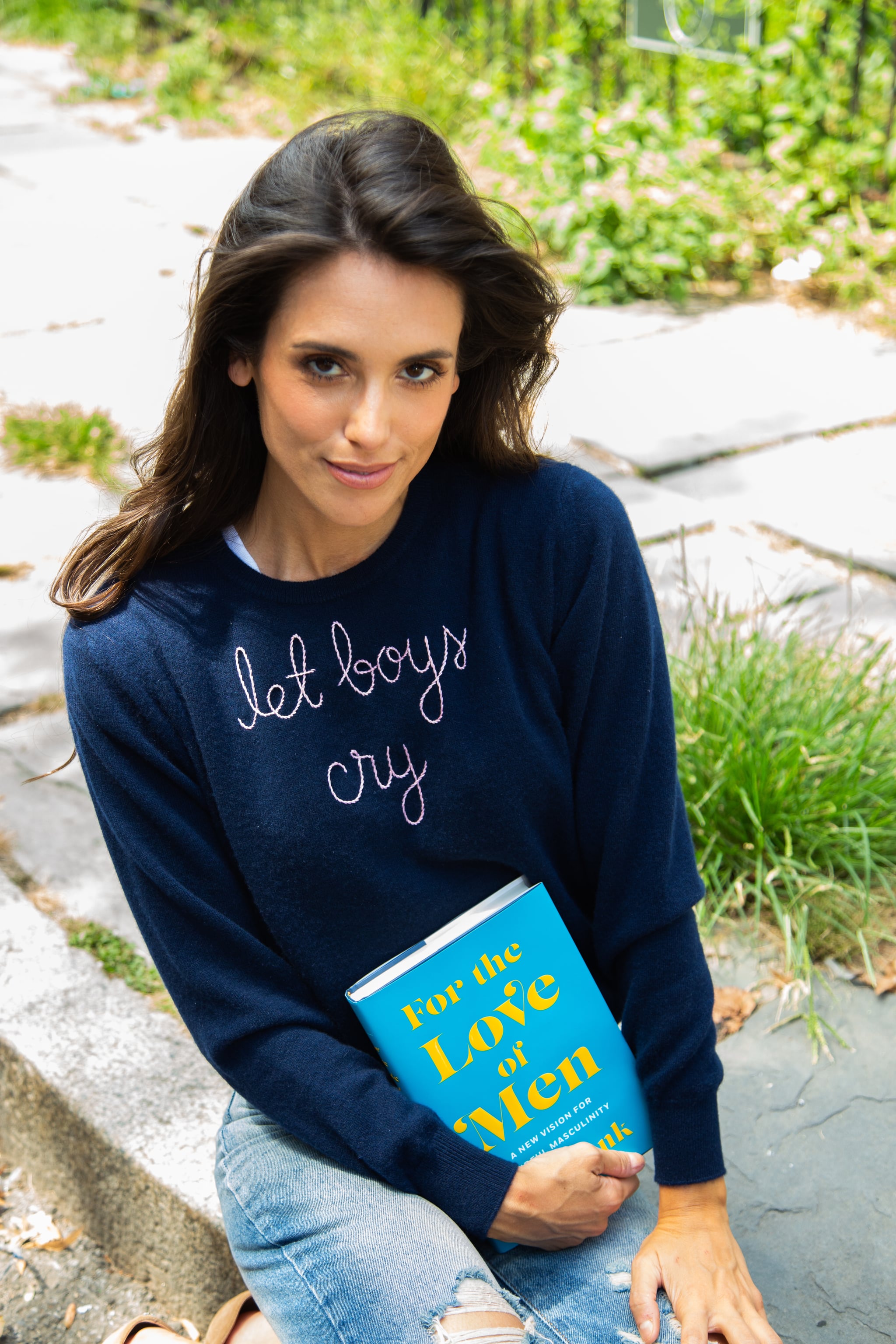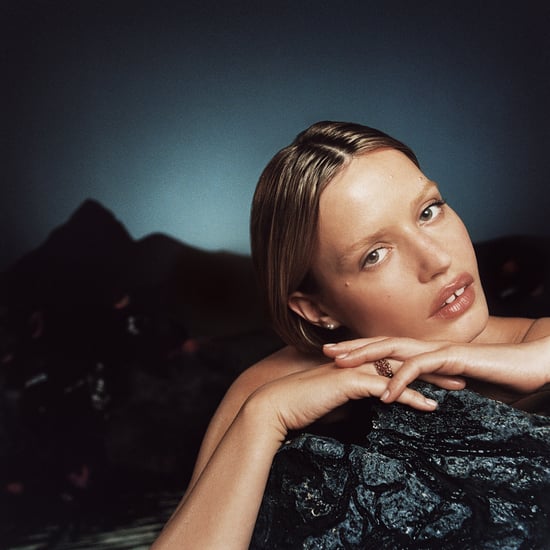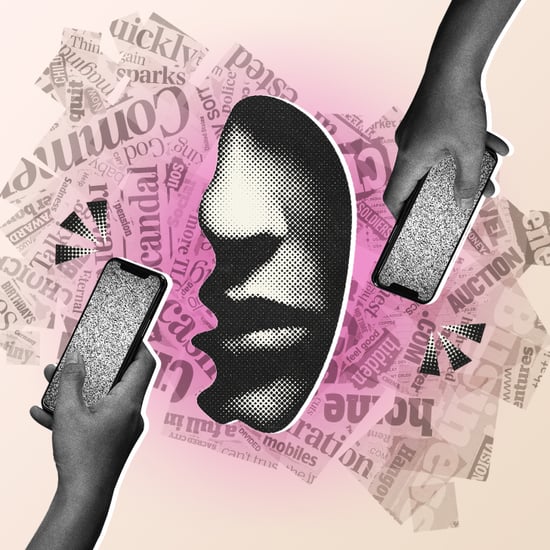Interview With Feminist Liz Plank About For the Love of Men
Why One of the Best-Known Feminists of Our Generation Just Wrote a Book All About Men

When feminist journalist Liz Plank decided her first book was going to focus on men, masculinity, and how the patriarchy harms people of all genders, she faced more than a little scepticism. It came from fellow feminists who wondered whether examining how men benefit from feminism was the most constructive place to focus her attention. It came from publishers who told her "men don't buy books." It came from men who assumed that any feminist setting out to question masculinity was "anti-man."
But since the book hit shelves, the author, commentator, and delightful social media presence is confident many of those initial sceptics have come around. As a feminist who may have felt my own twinge of hesitation about Plank's mission before cracking open her book, I can say I certainly have. Plank's empathy and hope are palpable in For the Love of Men's meticulously researched pages — pages that are also just plain enjoyable to read. (Yes, feminists can be funny.) The overarching feeling Plank's work left me with was excitement about what our future could, and hopefully will, look like once we banish harmful gender norms and progress past patriarchy.
I caught up with Plank in LA last week over a late lunch in the lobby of a Hollywood hotel. She's the kind of person you might call a "ray of sunshine," if by "ray of sunshine" you mean someone who radiates equal parts warmth and intensity. During our conversation, Plank reflected on the impact of the book and shared her exasperation over the fact that we don't involve men in conversations around gender more meaningfully. "Everyone has a gender. Not just half of us have a gender," she said. "The point of all these [social justice] movements should be to be good for all humans. There's this common good from all of these policies, and the fact that we don't talk about them is not helping anyone." Read on for more from Plank on why redefining manhood is truly a matter of life and death, and how — though it's certainly not on women to fix what's broken about men — we can all work toward a more egalitarian society.
POPSUGAR: You mostly avoid referring to "toxic masculinity" in the book. But doesn't the negative reaction to that phrase prove how tangled up our idea of manhood and masculine behaviour have become?
Liz Plank: I used to think that. Now, I think about if someone had approached me before I knew what feminism was and told me, "Have you heard about toxic femininity?" I would've been like, "Wait, what?" I came up with positive framing, this idea of mindful masculinity. I also switched out "toxic masculinity" for "idealized masculinity," because these are ideals, right? Men are doing bad things because they're told to do bad things, and they're rewarded for doing bad things, and the patriarchy is like a pyramid scheme. There are a few men at the top who dictate and who get benefits from it and then most of the men don't get any of those trickle-down benefits. But they think they will, so they act like Billy Bush. They laugh. Or they don't feel safe actually questioning it because they're not high up in that hierarchy. I want men to realise that they're living in a power structure, too.
PS: We hear so much about women at work and imposter syndrome, but your book explores this profound way so many men are experiencing imposter syndrome around their entire gender identity.
LP: I love you putting it as imposter syndrome, because again, we're used to having these conversations with women: "What shame do you carry around? Female shame of not being perfect, not being perfect in your body, not being perfect at your job, not being perfect as a girlfriend or as a mom?" Men carry so much shame, too. And wasn't it so amazing when someone gave you the language to recognise there's nothing wrong with me, there was something wrong with society? That my body wasn't broken, society was broken? It's such a liberating experience for women, and I would love to see men being able to experience that freedom, too.
PS: There was so much data and research in this book that surprised me, like the fact toddler boys emote more than toddler girls. Was there something you stumbled across while you were writing this book that shifted the way you think?
LP: So much. Again, I have the privilege of having a master's degree in this very topic [Ed note: Plank has a master's in policy with an emphasis in global gender politics]. And a lot of what I was reading about men and masculinity, I never knew. One of the most profoundly staggering pieces of data was around how men benefit in societies that are feminist and gender equal. So I travelled to Iceland, because they're the most gender equal modern society. I went there to save men from feminism [laughs].
PS: So kind of you!
LP: But they did not want to be saved! What I found was that they were actually pretty happy. They wanted things to be more feminist and they wanted more equality. They were enjoying more parental leave. They were enjoying the longest life expectancy in all of all of Europe. Men in gender equal countries are far less likely to get divorced. They're far less likely to die a violent death. Feminism can be the antidote to male suicide.
In the 2020 election, I don't know what's going to happen if we don't talk about how bad Donald Trump is for men.
PS: In the book you share perspectives from men who are often excluded from the narrative around masculinity, whether it's because they're queer or living with a disability. Why was talking to men who could, in a way, examine manhood from both the inside and outside, so vital to the book?
LP: First of all, those are the interviews that were the most fascinating, and that lasted for hours. There was a richness there — just a more complex, interesting conversation around masculinity. The experience of being a black man in America is totally different from the experience of being a white man in America. Or the experience of having a disability, when the ideals of masculinity are bound to this idea of independence, of self-reliance, of never asking for help.
PS: You must've gotten a lot of really moving responses from men who have read the book. Is there anything that's really stuck with you?
LP: Just on my way here, I got a text from a friend who said, "I'm halfway through your book and I've already cried three times." I've had DMs [from] men saying, "The chapter about male shame gave me language to talk about something that no one has ever been able to give me, not even a therapist." At book events, I've had a lot of men tell me, "How do I talk about this with my dad? I've tried to bring it up."
PS: So how can all of us, whether we are male or female or cisgender or transgender, encourage the men in our lives to feel like they can start examining masculinity?
LP: The way that I've been successful is tapping into the ideals of masculinity. Men want to protect and provide. I actually don't have a problem with that. I think we all should want to protect and provide for the people that we love. They just have a f*cked up understanding, some of them, of how to protect and provide. Getting a gun or getting a sick body by going to the gym every day is not actually protecting and providing if you're not able to manage your feelings. A lot of men have been misguided. Get the book for them, and if you want to Venmo them afterwards, I also encourage that, because I don't think it should be up to women.
PS: You were working on this book for years. Waking up the morning after the 2016 election, did you think, "I need to start over?"
All I see is the potential of young boys being able to harness fully who they are.
LP: I did. I rewrote the book. I'm a campaign reporter for Vox, so I went to one of Trump's last rallies in Berlin, Pennsylvania, four or five days before the election. I talked to female Trump supporters — obviously all of them were white. I said, "Seven out of 10 women have an unfavourable view of Donald Trump. What would you say to those women so that they vote for Donald Trump?" One woman looked at me and said, "I think seven out of 10 women have an unfavourable view of a lot of men." That's when I knew Donald Trump was going to win. Not because we don't respect women, but because we don't respect men. We have a standard of masculinity and manhood that is so low that someone who brags about sexual assault, who laughs at a disabled person, who mocks other men for being weak or for crying, who is just literally afraid of anyone who's brown and black, uses that as a political tool [and wins]. In the 2020 election, I don't know what's going to happen if we don't talk about how bad Donald Trump is for men. He's bad for women — we've talked about that. We need to talk about how he's bad for men, too.
PS: Obviously, you would not bother to write a book like this if you thought all was lost. What gives you hope?
LP: I've seen how liberating it is for young girls to start coding, and get science kits, and wear superhero capes, and have that latitude to be whoever they want. All I see is the potential of young boys being able to harness fully who they are, and us getting the benefit of more boys becoming teachers, and becoming social workers, and becoming care workers. A lot of boys, there are certain things they want to do and want to be, and we crush it. We talk so much about, "What if the next person who comes up with the cure for cancer is a girl?" Well, what if the next teacher who [could] change the lives of so many boys ends up working in construction because he wants to be a teacher, but he's told that's for pussies? It's all about freedom. If we have the right framing in this conversation and we have great empathy for each other, we all win.






